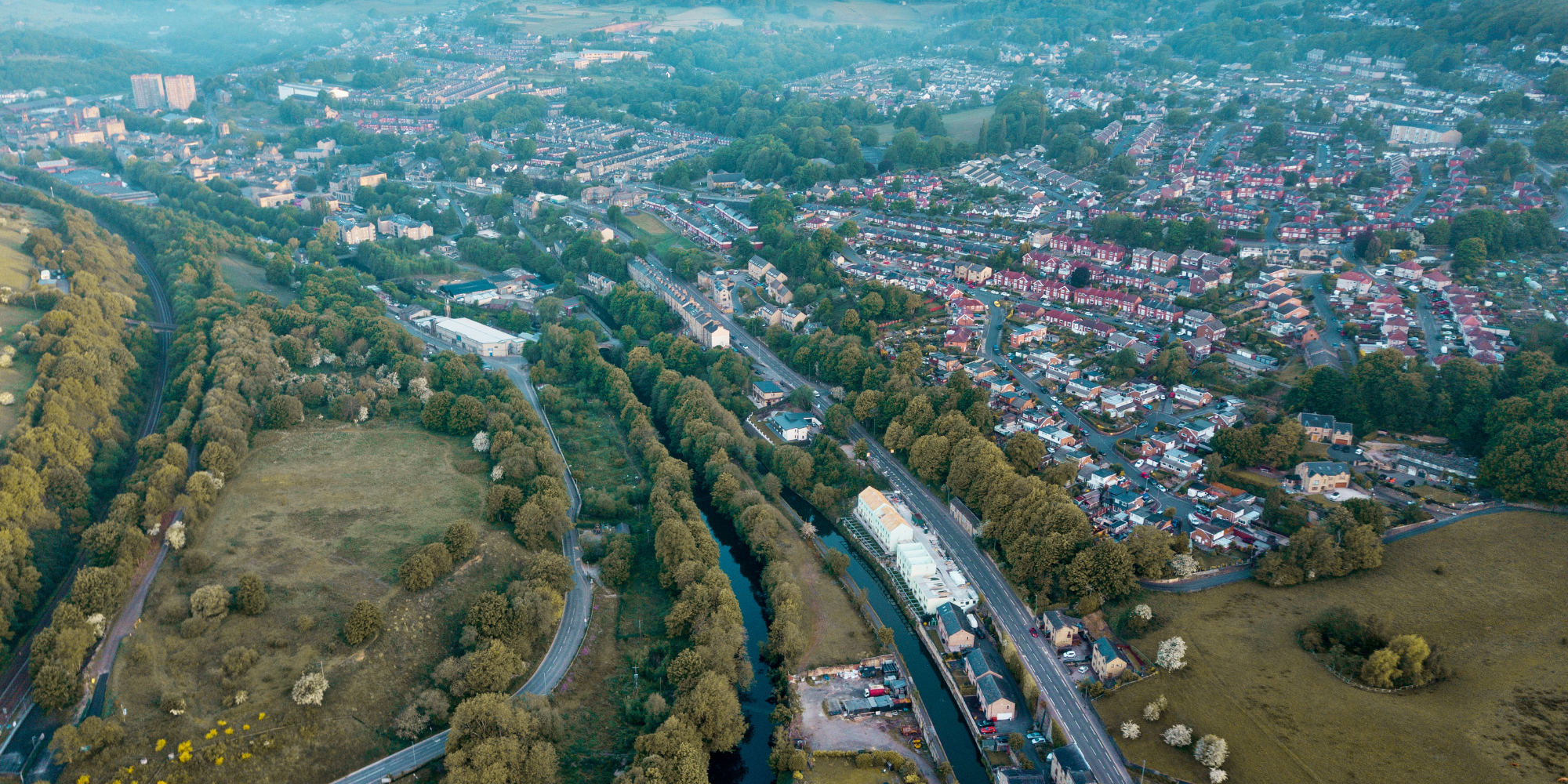With Xweather Horizon's network-wide forecasts, Calderdale Council has taken steps toward automated, prescription-based salting that optimizes treatments and reduces waste.
The challenge: Complex terrain and sharp temperature changes
Calderdale Council is a metropolitan borough in West Yorkshire, UK, with unique winter maintenance challenges. Its road network covers approximately 660 kilometers with routes that quickly transition from hilltops to valley bottoms. Bridges, steep-sided valleys, and high ground add to the operational complexity as temperatures can vary dramatically over short distances.
Jonathan Cole, Corporate Lead - Highway Maintenance—and the council’s lead for winter service—explains: “On marginal nights, a small part of the network will go below freezing and we need to know that, so we can treat those local hazards, but not spend money treating the entire network.”
The solution: Network-wide insight with Xweather Horizon
To address these challenges, Calderdale Council adopted Xweather Horizon, a road weather intelligence platform from Xweather that integrates data from fixed and mobile sensors across the borough to provide a 72-hour, network-wide forecast. With Xweather Horizon, the council has stopped treating its entire network “just in case” and started relying on targeted, data-driven treatments where and when needed.
Jonathan says the big advance was being able to monitor the network 24/7, not just at a single point in time. The team can now see when the road network is forecast to dry off, which is critical for deciding on salt spread rates and timing. This level of detail supports more precise, prescription-based gritting, especially on those tricky marginal nights.
Implementation: Building trust and honing practices
Calderdale’s winter decision-making team consists of four people, with two on call at any time. During the initial rollout, the two less experienced decision makers trialed Xweather Horizon alongside the legacy system, while the more experienced staff used both for comparison. “It’s important to build trust in a new system,” Jonathan notes. “We’ve always relied on thermal mapping, and now we’re moving to a forecast-based approach that covers the whole network.”
A notable benefit is that Xweather Horizon supports confident decision-making at all skill levels. “For less experienced decision makers, it provides reassurance about how the weather will behave across the network. For those who’ve done this for years, it’s a valuable confirmation of what we expect to see.”
“We’ve always relied on thermal mapping, and now we’re moving to a forecast-based approach that covers the whole network.”
Jonathan Cole, Corporate Lead for Green Spaces and Street Scene
The result: More efficient and responsive operations
Xweather Horizon has helped Calderdale Council improve its winter maintenance practices in several ways:
Targeting treatments more precisely, reducing unnecessary salt use and operational costs.
Timing actions optimally using up-to-date forecasts and drying information to decide when to treat.
Supporting collaborative decision-making when conditions are marginal or changing rapidly by giving all on-call decision-makers access to the same network-wide view.
Preparing for the future as the council explores integrating telematics and automated recommendations, paving the way for even smarter, more responsive winter maintenance.
Jonathan admits the team is still honing its operations for maximum efficiency, but they’ve already taken a crucial first step toward automated, prescription-based salting. “With Xweather Horizon, we’re helping decision makers make quick, informed decisions—especially when conditions change in the middle of the night.”
The outlook
Calderdale Council is already planning to refine its cold-route network using insights from Xweather Horizon, ensuring treatments are always targeted where they’re needed most. As the council continues to integrate new technologies and data sources, this partnership with Xweather positions it at the forefront of smart, sustainable winter maintenance.
